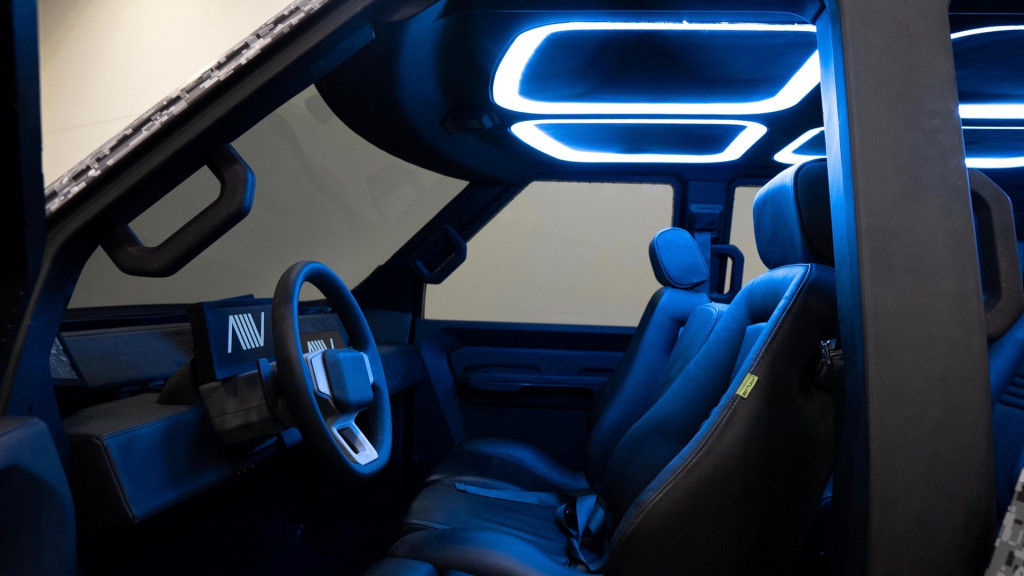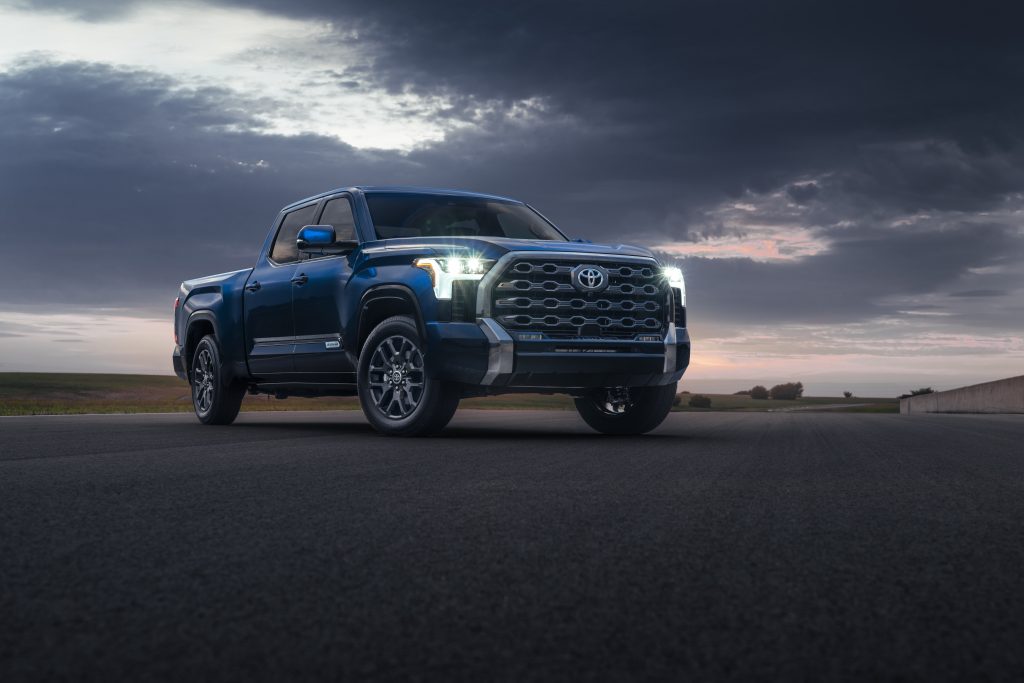A developer managed to get Android Auto working in Tesla vehicles through the web browser and an app on Google Play. One of the most requested features by Tesla owners is enabling phone mirroring apps like Android Auto and Apple Carplay. At one point, CEO Elon Musk said that Tesla was working on phone projection… Continue reading Android Auto now works in Tesla vehicles through the browser
Tag: Apple
Lordstown nears deal to sell ex-GM Ohio plant to Taiwan’s Foxconn
Lordstown Motors Corp., the electric-truck maker running low on cash, is near an agreement to sell its highly politicized Ohio factory to Taiwan’s Foxconn Technology Group, people familiar with the matter said. The companies are set to announce the pact as soon as this week, said the people, who asked not to be named as… Continue reading Lordstown nears deal to sell ex-GM Ohio plant to Taiwan’s Foxconn
Atlis reveals prototype of XT heavy-duty electric pickup truck – Motor Authority
Atlis Motor Vehicles recently unveiled a prototype of its XT electric pickup truck, reiterating claims of a range of 500 miles and a 15-minute recharge time. The startup, which has relied heavily on crowdfunding so far, announced the XT in 2019. At the time, it said the pickup would start production as soon as 2020.… Continue reading Atlis reveals prototype of XT heavy-duty electric pickup truck – Motor Authority
@Toyota: Motor Bella Executive Remarks
JOE MOSES: Good morning! Thank you so much for joining us today. We’re very excited to finally unveil the long-awaited 2022 Toyota Tundra. The new Tundra’s development has been a long and deliberate road to create an exceptional truck, and it’s truly an American story from start to finish. For starters, just down the street… Continue reading @Toyota: Motor Bella Executive Remarks
New 2022 Ineos Grenadier to go on sale next year priced from £48,000 – AutoExpress
The Ineos Grenadier 4×4 will go sale next year with prices starting from “around £48,000” for the two-seat commercial version. The five-seat commercial and passenger models will cost “between £4,000 and £6,000 more”, according to UK Ineos boss Gary Pearson. The French-built, Austrian-engineered and British-conceived new 4×4 – evoking memories of the original Land Rover… Continue reading New 2022 Ineos Grenadier to go on sale next year priced from £48,000 – AutoExpress
@Groupe PSA: PR CITROËN UK EXPANDS NEW Ë-SPACETOURER ELECTRIC RANGE WITH TWO NEW XL VARIANTS002558
Citroën UK has revealed an important change to its New ë-SpaceTourer electric MPV range. New Citroën ë-SpaceTourer electric range now includes ‘XL’ variants for the first time, available across both ‘Business Edition’ and ‘Flair’ trim levels. New ë-SpaceTourer electric range is priced from just £31,995, after £2,500 Government Plug-in Car Grant (PiCG), in line with… Continue reading @Groupe PSA: PR CITROËN UK EXPANDS NEW Ë-SPACETOURER ELECTRIC RANGE WITH TWO NEW XL VARIANTS002558
@GM: 2022 Chevrolet Tahoe and Suburban Offer More Power and Technology
2022 Chevrolet Tahoe and Suburban Offer More Power and Technology 2021-09-27 Popular 6.2L V-8 engine option expands to three more trims: RST, Z71 and Premier For Z71, the new, available electronic limited slip differential helps manage torque and increase driving confidence A new, larger 12.3-inch-diagonal configurable digital instrument cluster now standard on LT trims and… Continue reading @GM: 2022 Chevrolet Tahoe and Suburban Offer More Power and Technology
@Toyota: Absolute Powerhouse: Next-Generation 2022 Toyota Tundra
Standard i-FORCE 3.5L twin-turbo V6 produces up to 389 horsepower, 479 lb.-ft. Available i-FORCE MAX powertrain produces up to 437 horsepower, 583 lb.-ft. Up to 12,000-pound maximum towing capacity Bold exterior styling complements spacious, well-equipped interior Available 14-inch touchscreen highlights all-new Audio Multimedia system 12.3-inch Instrumentation Panel display available Toyota Safety Sense 2.5 active safety… Continue reading @Toyota: Absolute Powerhouse: Next-Generation 2022 Toyota Tundra
@Geely: Mon 20 Sep 2021Lotus confirms full specification and price of all-new Emira V6 First EditionLotus has confirmed the price and full specification of th…
Packed with desirable technology, infotainment and comfort features, UK cars will cost £75,995 Supercharged 3.5-litre 400hp V6 with six-speed manual transmission as standard, optional six-speed auto with paddleshift Four option packs included in the spec, plus unique First Edition badging Choice of six vibrant exterior colours, with more to follow next year Updated Emira V6… Continue reading @Geely: Mon 20 Sep 2021Lotus confirms full specification and price of all-new Emira V6 First EditionLotus has confirmed the price and full specification of th…
Tesla unveils its ‘secret to a quiet cabin’: Proprietary ‘Tesla Glass’
Tesla has released a new video that unveils its “secret to a quiet cabin”: its propriety Tesla Glass. It is fairly rare for Tesla to produce marketing videos about its technology outside of actual special events, but the automaker decided to release one today about ‘Tesla Glass’. Back in 2016, we reported on the automaker… Continue reading Tesla unveils its ‘secret to a quiet cabin’: Proprietary ‘Tesla Glass’

